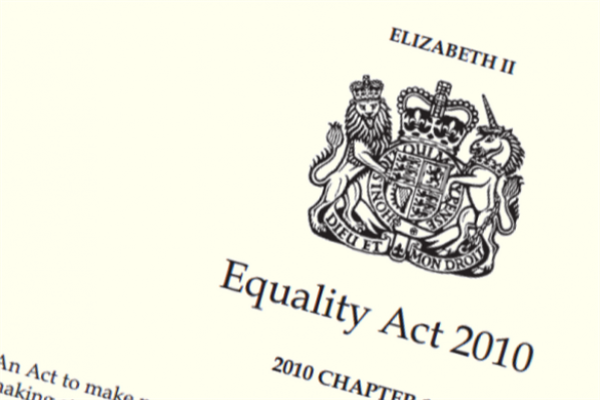The Equality Act 2010

All equality, diversity and inclusion frameworks, principles, policies and procedures of any organisation are first and foremost governed by the Equality Act 2010.
The main principal aim of the Equality Act 2010 is to promote equal opportunities for flourishing for people of all backgrounds and eliminate unfair or prejudicial treatment. The Act offers protection to people with nine listed ‘protected characteristics’:
-
age
-
disability
-
gender reassignment
-
marriage and civil partnership
-
pregnancy and maternity
-
race
-
religion or belief
-
sex
-
sexual orientation
As Christians we wholeheartedly embrace fairness in the workplace, no matter what our colleagues’ backgrounds are. We stand against prejudice, unequal pay and white supremacy. Jesus loved people from every sector of society, including the outcasts everyone looked down on: the poor, the sick, the troubled and the oppressed (Luke 15:1-2, Luke 7:34).
Mark 2:16-17 says: When the teachers of the law who were Pharisees saw him eating with the “sinners” and tax collectors, they asked his disciples: “Why does he eat with tax collectors and sinners?” On hearing this, Jesus said to them, “It is not the healthy who need a doctor, but the sick. I have not come to call the righteous, but sinners.” Jesus spent time with people from all sorts of backgrounds because all of them, like all of us, have turned aside from God and need God’s transforming work in our lives. Many companies have set up diversity and inclusion teams within their organisations to establish strategies and policies that promote the flourishing of staff who share one or more of the protected characteristics. The teams are normally responsible for resolving any day to day issues that staff may have with company policies, or to act as the first port of call for individuals experiencing what they believe to be discrimination.
Alongside the requirements of the Equality Act many companies are encouraging people to “bring the whole of themselves to work.” When individuals feel able to be honest and open about what is most important to them, including their values and beliefs, they are likely to feel respected, valued and accepted, and from a business perspective to be more engaged at work.
Rather than approaching the Equality Act and diversity and inclusion with cynicism, as Christians we can embrace this unparalleled opportunity to be open and honest about our faith and to demonstrate the love of Jesus to our colleagues with the blessing of the organisation’s board.
| A quick summary about Diversity, Equality and Inclusion
|
| Are the principles of equality and diversity rooted in Jesus' life and teachings? |
| As defined by the Equality and Human Rights Commission Guidance – An Employees guide to Creating an inclusive workplace |
| Equality and Diversity are overlapping principles, but they are not the same. |